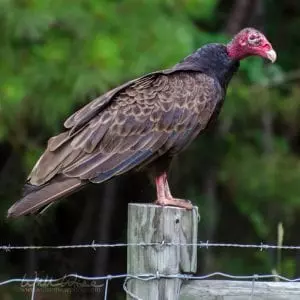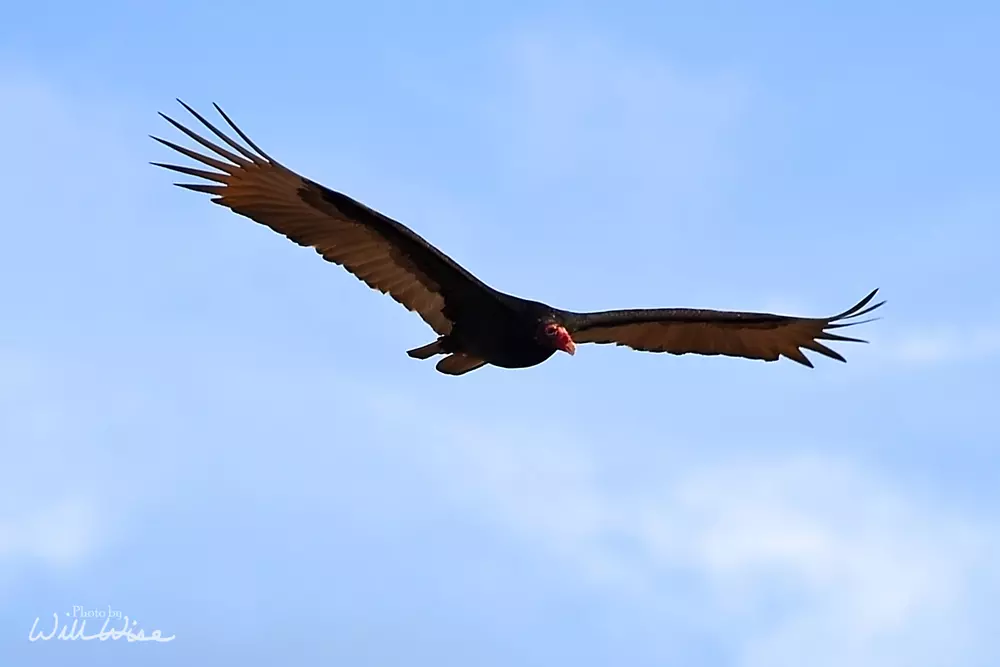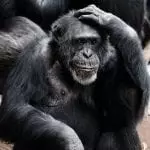[Part 1: Originally posted as Creation Speaks: Designed for Dirty Work]
What was THAT Created For???
God created all things, and He created all things with a purpose. But have you ever wondered why He created certain things?
Other than to bring about man’s demise in the garden, what is the purpose of the snake?
And why in the world did God create the mosquito? Certainly, our backyard picnics and camping trips have not been enhanced by the presence of this irritating insect. Not only is its annoying buzz heard in the ears, but his sting is still felt three or four days after the bite.
But everything on this earth has a purpose. Sure, we loathe the snake, but would you rather be overrun with rats and mice or tolerate the few snakes that inhabit your area? Mosquitoes may appear useless to us, but to bats, tadpoles, lizards and other critters, the little stinger is a primary source of food and can’t be lived without!
Every person is also created with a purpose. In Christian vocabulary, purpose is also known as “the will of God.” There is a “will of God” for every created thing. Webster’s dictionary defines will as “a particular desire, purpose, or choice of a certain person or group; a compelling command or decree; a strong and fixed purpose.” God has a strong, fixed purpose for each and every person. In other terms, everything has a job to do and God has set the job description for each.
Whether good or bad, saint or sinner, Christian or not, God has a specific will for every individual. The apostle Paul recounted that immediately after conversion, God revealed the will for his life: “I have appeared unto thee for this purpose, to make thee a minister and a witness both of these things which thou hast seen, and of those things in the which I will show unto thee.” (i) Even those hostile to God have a job assignment. To the hard-hearted pharaoh of Egypt God proclaimed, “But I have raised you up for this very purpose, that I might show you my power and that my name might be proclaimed in all the earth.” (ii) Somewhere in the middle are others that have a divinely appointed purpose but only begrudgingly complete it.
One such person was the prophet Jonah.
Jonah, like other prophets, was no doubt called to his task from before he was born. The Bible specifically states that the prophets Jeremiah and Isaiah were ordained for their jobs before they were even born. To Jeremiah he said, “Before I formed thee in the belly I knew thee; and before thou camest forth out of the womb I sanctified thee, and I ordained thee a prophet unto the nations.” (iii) Jonah’s divinely appointed job description was to reach the much despised foreigners of Nineveh; a task he considered a dirty job and “it displeased Jonah exceedingly, and he was angry.” (iv) But that was what God had created him for, whether he liked it or not.
DOING THE DIRTY WORK…
When you consider different animals and their job duties, you quickly find that not every God-assigned purpose seems very attractive. Some animals have a very dirty job. Like the dung beetle. Who would want that job?!! Many dung beetles, known as rollers, roll dung into round balls, which are used as a food source for brooding chambers. Other dung beetles, known as tunnelers, bury the dung wherever they find it. A third group, the dwellers, neither roll nor burrow, they simply live in manure. (v)
Another critter with a disgusting duty is the vulture. We have two species in Georgia: the black vulture and the turkey vulture. Both are large, sooty black birds often seen soaring the skies. The Black Vulture has a bald, wrinkled, black head. Turkey vultures are larger, have longer and straighter wings, and bear scaly red heads.
While they differ somewhat in appearance and biology, both carry the same job of carrion cleanup. Our roadways are often littered with lumps of fur and entrails; all that remains of the poor critters that didn’t make it across the road the night before. Normally, standing around these piles are a macabre host of ominous, large, black buzzards picking apart these rotten corpses. The word vulture likely comes from the Latin vellere, which means to pluck or tear. (vi)
It is no doubt for this disgusting habit of ripping into rotten carcasses that God pronounced, ‘These, moreover, you shall detest among the birds; they are abhorrent, not to be eaten: the eagle and the vulture and the buzzard.” (vii) I’m sure none would argue with God and substitute a turkey vulture as the main course on Thanksgiving!
We abhor this big black bird as a disgusting creature. Our disgust comes from an assumption that this is what the vulture likes to do. But this is the job it has been assigned by God. A nasty but necessary job! He is God’s carrion cleanup crew. Its scientific name, Cathartes aura, means “golden purifier,” (viii) perhaps because he helps keep America beautiful!
I thank God that in my 18 years of animal control, I’ve never been assigned the duty of dead animal pickup. But some poor highway department employee’s job has been made so much easier by the vultures. A fresh, entire road-kill deer seen on the drive to work in the morning can be just a rib cage and fur on the drive back home later that evening. The vultures are quite efficient at quickly cleaning a corpse. To experiment, the Forensic Anthropology Research Facility in Texas placed a camera near a human cadaver and watched as a group of about 30 Black Vultures picked the dead body to a skeleton in just five hours. (ix) They excel at the job to which God has appointed them.
No Complaining…
Vultures always do their job without complaint. In my opinion, this makes them smarter than man. In fact, I think all animals are smarter than man in this aspect! We often laud the human species as the most intelligent life on this planet. But is this really the case? Humans the only species dumb enough to disobey God and buck at the duties assigned us. Animals never do this and always carry out their God-given tasks. Man is the only creature that disobeys! Often, when God says to a man, “don’t do that”, he does it. And when told “do this”, he doesn’t! But animals always obey.
When an enemy nation attempted to hire the prophet Balaam to curse Israel, God told him, “Thou shalt not go with them.” A clear command not open to too much interpretation. Yet, “Balaam rose up in the morning, saddled his donkey, and went with the princes of Moab.” (x) But the prophet’s donkey, the “less intelligent creature,” three times halted course in an attempt to obey God. God said, “don’t do”, but the prophet did. Who was the real ‘donkey’ here?
On the other end, God says do, and we don’t. God specifically told the prophet Jonah, “Arise, go to Nineveh, and preach.” This was again a very clear command with little room for alternative interpretations. Not only did Jonah disobey and refuse to go, but “Jonah got up and went in the opposite direction in order to get away from the LORD. He went down to the seacoast, to the port of Joppa, where he found a ship leaving for Tarshish. He bought a ticket and went on board, hoping that by going away to the west he could escape from the LORD.” (xi) Yet when “the Lord appointed a great fish to swallow Jonah,” (xii) it instantly obeyed and went where God wanted it, when God wanted it, and swallowed up the disobedient prophet. Yet the fish is the more “primitive creature” in this story?
D.L. Moody wrote, “Did you ever notice all but the heart of man obeys God?” If you look right through history, you will find that this is true. In the beginning God said, “Let there be light,” and there was light. “Let the waters bring forth,” and the water brought forth abundantly.
And one of the proofs that Jesus Christ is God is that He spoke to nature, and nature obeyed Him. At one time he spoke to the sea, and the sea recognized and obeyed Him. He spoke to the fig tree, and instantly it withered and died. It obeyed literally and at once. He spoke to devils, and the devils fled. He spoke to the grave, and the grave obeyed Him and gave back its dead. But when He speaks to man, man will not obey Him; that is why man is out of harmony with God, and it will never be different until men learn to obey God.
Have you ever had a coworker who complains all the time? It can be very frustrating. Not only are we to get a job done, but as Christians, it matters with what attitude we get the job done. Webster’s Dictionary defines purpose as determination, energy and enthusiasm; to do something “with purpose.” For the Vultures, eating rotten carcasses is what they live for! They live to do what they were created to do—riding the thermals high in the sky in search of rotting flesh—enthusiastic to do the will of God!
Even Jesus, who had the dirtiest job of all, being tortured and executed for crimes He did not commit, “opened not His mouth” in complaint and accepted the will that God had for His life. Paul wrote to the Philippian church members, “Your attitude should be the same that Christ Jesus had. God is working in you, giving you the desire to obey him and the power to do what pleases him. In everything you do, stay away from complaining and arguing.” (xiii)
A vulture will stick his head in a rotten corpse in obedience to the job God assigned it, yet we won’t obey in simpler, much less disgusting things? So you tell me, who is the smarter species? Perhaps we humans should learn the lesson that creation speaks and do His will without question!
ii Exodus 9:16 NIV
iii Jeremiah 1:5
iv Jonah 4:1
v https://en.wikipedia.org/wiki/Dung_beetle
vi http://www.allaboutbirds.org/guide/Turkey_Vulture/lifehistory
vii Leviticus 11:13
viii http://www.allaboutbirds.org/guide/Turkey_Vulture/lifehistory
ix https://sciencebasedlife.wordpress.com/2012/02/08/how-long-does-it-take-for-vultures-to-eat-a-human-body/
x Numbers 22:12, 21
xi Jonah 1:3 New Living Translation
xii Jonah 1:17
xiii Philippians 2:5, 13-14








Thanks for so eloquently saying what I knew all along!
What a great article Bill! Obedience certainly is a challenge at times but trusting in HIM and following HIS lead is the ONLY way!
And when we obey, the destinations He can take us are endless and beyond our dreams and desires! Thanks, William
This is wonderful!! Exactly what I need to tell my students and remember myself!! Thank you for this!!
Cheryl, obedience is key in the Kingdom of God. If a vulture can obey, we certainly can too! Thanks for reading and commenting. William
Thank you for this interesting article. I remember reading a good article in the 1980’s in the Missouri Conservation magazine about vultures that also was humorous. Some of the bird’s characteristics included defacating on its legs to control mites, and regurgitating onto something when confronted.
Thanks David! It is true we can learn a lot about our Creator by studying the works He created. Thanks for reading. William